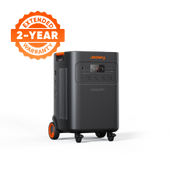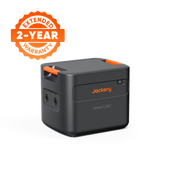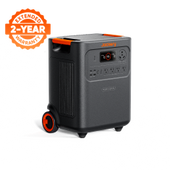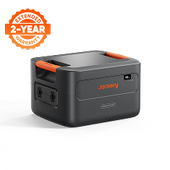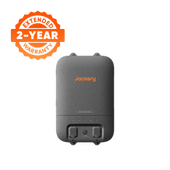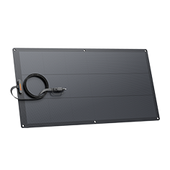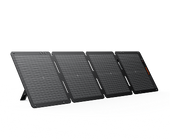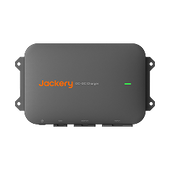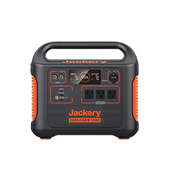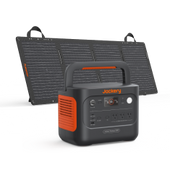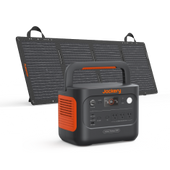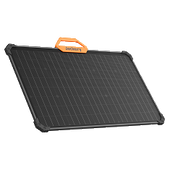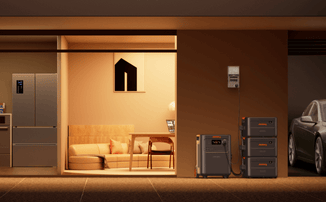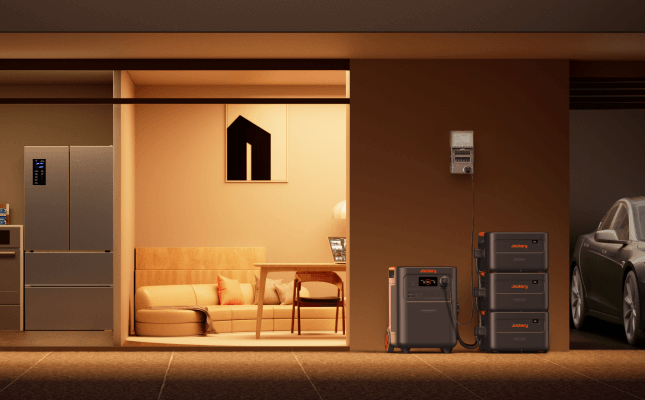Off The Grid Camping: Everything You Need to Know
When planning an outdoor trip, many people prefer off-the-grid camping as it helps you get closer to nature and spend quality time away from the chaos of city life. According to the 2023 North American Camping & Outdoor Hospitality Report, camping incidence has grown significantly over the past year and anchors about 32% of the leisure travel market.

While off-the-grid camping allows you to unplug from the stress of the modern world, it's important to prepare and plan beforehand for a stress-free experience. Jackery Solar Generator 2000 Pro is designed to power 96% of outdoor appliances. It has a massive battery capacity of 2160Wh to charge devices like mini-refrigerators, coffee makers, electric stoves, etc., for long hours.
|
Jackery Solar Generator 2000 Pro |
|
|
- Features a massive battery capacity of 2160Wh. - Power 96% of your outdoor appliances. - Superior BMS (Battery Management System) for improved security. - Built with four temperature core detectors and dual battery protection for safe and reliable charging. - Emits only 30dB of noise during operation. |
What Is Off-The Grid Camping?
Off-the-grid camping focuses on living without being connected to the electricity grid and is ideal for those wanting to take a break from their usual way of living. While off-grid camping is a great stress buster for anyone looking for an outdoor adventure, you'll need a plan for food, water, and, most importantly, a power supply.
Now that you have understood what off-grid camping is, here are a few different types you should try in 2023.
Boondocking
Boondocking is usually done on public or government-owned lands without water, electricity, and sewer connections. Some common campgrounds where one can boondock include BLM (Bureau of Land Management) land, USFS (US Forest Service), National Grasslands, and state trust lands.
Pros
- You don't have to pay money to camp on government-owned lands.
- It is pet-friendly, hence preferred by people who have pets.
- Only a few people opt for boondocking, making it more peaceful and quiet.
Cons
- There are no electric outlets or other facilities, so you'll have to be more self-sufficient.
- The locations are pretty remote, which means you've to drive farther to find the spot.
- Your camping experience will depend on road and weather conditions.
Primitive Camping
Some campgrounds, national and state parks, and RV parks offer primitive sites for camping. Unlike popular campsites, these sites are generally remote and budget-friendly options. If you want to enjoy the outdoors in your tent without any distractions, you can choose primitive camping.
Pros
- Primitive camping is more affordable than designated campsites or developed campgrounds.
- It makes you more self-reliant and learn essential outdoor skills.
- It lets you escape the noise and distractions of the modern world.
Cons
- Not all remote primitive sites are easily accessible.
- Some campsites present safety risks related to extreme weather conditions, rugged terrains, and wildlife encounters.
Dry Camping
Dry camping, also called dispersed camping, is a popular outdoor adventure done in an RV, van, or motorhome without utilities and outside a traditional campground. You can generally find dry campers camping in national parks and forests.
Pros
- There are no designated campsites, so you can park wherever you like.
- It is generally free, making it ideal for someone on a tight budget.
- It typically takes place in a more pristine and private nature setting.
Cons
- You'll have to take more stuff with you since there are no electrical hookups available.
- You must familiarize yourself with all applicable regulations of the campground.
Wild Camping
Wild camping is another way to approach the outdoors and nature. It lets you immerse yourself in the untouched and remote locations, away from other campers. Some ideal spots for wild camping include mountains, woodland, or along coastlines.
Pros
- You don't have to pay any campsite fees for wild camping.
- It opens up opportunities for adventure and exploration.
- Unlike campsite camping, wild camping lets you choose the spot and enjoy complete privacy.
Cons
- Wild camping exposes you to unpredictable weather conditions and safety challenges.
- You'll have to follow a no-trace policy, as improper practices can harm the environment.
What Are The Benefits Of Off The Grid Camping?
Off-grid camping means cutting connections from the electricity grid and experiencing the beauty of nature coupled with modern convenience. People often think that off-the-grid camping means giving up on all the amenities. However, that's not the case if you plan properly and pack all the essentials like water, food, and power.
Below, we'll reveal a few benefits of why everyone should explore off-grid camping once in their life.
- Camping off the gridlets you save money and eliminate the expensive campsite fees.
- Since you'll use fewer resources during off-grid living, it reduces your carbon footprint.
- You can spend quality time away from the pressure of city life.
- It offers a sense of freedom and flexibility to your camping experience.
- The vast expanse of nature provides the campers an immersive and deeply rejuvenating experience.
Is There Any Challenge In Off The Grid Camping?
While there are multiple benefits of camping off the grid, it comes with a few challenges. For instance, you may find it tedious to choose the right location or charge essential electric devices like smartphones.
This section will shed light on some common challenges campers face during off-grid living and their respective solutions.
Fewer Amenities Available
Off-the-grid camping requires campers and outdoor enthusiasts to be self-sufficient. You'll have to bring your water and power supplies to live comfortably without any electric outlets or power sources.
The best way to overcome this issue is by choosing a portable battery backup like Jackery Explorer Portable Power Stations. They are lightweight and compact charging solutions that can be carried during outdoor trips.
Harsh Weather Conditions
Weather plays a vital role in making or breaking your outdoor camping experience. For this reason, it's important to check the weather conditions before you plan your adventure.
In order to stay comfortable, all you need to do is bring proper clothing and appropriate gear for the hot, cold, and rainy seasons. This will help you eliminate the stress of sudden weather changes and continue with your trip.
Finding a Good Location
You're probably choosing off-grid living to spend time away from the hustle and bustle of the city. Choosing a location with campers all around can ruin the peaceful experience. That's why it's better to spend some time selecting a site amidst nature and peace.
What To Pack For Off The Grid Camping?
Off-grid camping, also known as boondocking, is about taking a break and riding on nature's back. But let's not forget that nature isn't always kind to people.
You might be camping in your tent, and the rain starts. Or, let's say you want to contact your friends or family, but your phone gets disconnected. The right gear can help you begin your off-grid adventure in these scenarios.
Power Source
Solar panels and portable battery backups are great power sources, especially when you want to reduce your carbon footprint. Jackery Solar Generators combine solar panels and a large-capacity power station to convert sunlight into electricity and charge appliances.
For instance, if you're planning a short camping trip, a Jackery Solar Generator 1000 Pro might be your great outdoor companion. If you want a bigger option, Jackery Solar Generator 3000 Pro is the way to go. Its massive battery capacity of 3024Wh can power 99% of your outdoor appliances.

LED Lights
LED lights consume little to no power and increase your campsite's visibility. If your camping site is away from street or security lights, you'll need more LED lights to illuminate the surroundings and be safe.
Water Sources
When you're living off the grid, there is no guarantee that you'll get a freshwater supply. That's why most campers prefer buying off-grid water systems. A simple water filtration system filters the rainwater to ensure it is free of bacteria and microbes.
Composting Toilet
Composting toilets is a practical and eco-friendly option for reducing water consumption and negative environmental impact. They require little to no water and typically use odor-blocking materials.
How To Start Your Off The Grid Camping?
Day-to-day life can soon become boring, and it can be tempting to pack your gear and start off-grid camping. But since this type of camping demands one to be self-sufficient, you'll need to carry the right equipment.
Shelter Types
Some popular shelter options for off-grid camping include as follows:
Tent: There are four main types of tents: family camping, ultralight, three-season, and four-season. While three-season tents are ideal for spring, summer, and fall, four-season tents suit all seasons. If you want to reduce the weight of your backpack, you can consider ultralight tents. In contrast, family camping trips are often larger in size and can accommodate more people, making them ideal for family trips.
RV: Campers and RVs are a great option for those wanting to have a lot of amenities. Bigger RVs typically have a good storage space for cooking, sleeping, and bathroom facilities.
Food Options
When camping off the grid, you should choose shelf-stable food options. Canned foods do not require refrigeration and have a longer shelf life. Besides, dried fruits and vegetables are easy to store and perfect for outdoor adventures.
Dairy items are a great way to make your food taste delicious. However, they require proper refrigeration. If you want to carry dairy items but don't have a refrigerator, you can choose shelf-stable powdered and plant-based milk.
Power Options
When you are away from the home grid, you can power appliances using solar panels, portable power banks, and generators. While solar panels can help you use the free energy to charge devices, they will not work when the sun isn't shining.
For this reason, it's better to connect solar panels with a portable battery backup and store the extra energy. The power station can store energy during the day and supply electricity whenever you need it. Jackery offers a wide range of solar power stations and panels that simultaneously charge multiple electrical devices.
Navigation Land Regulations
Here are a few important navigation land regulations you must remember before off-grid camping.
Research Land Management Agencies: The rules for off-grid camping may differ in different states. Therefore, you'll need to understand restrictions on wildlife protection, campfire usage, and waste disposal beforehand.
Leave No Trace: You should follow a leave-no-trace policy during off-grid living. It's important to practice responsible camping etiquette to minimize environmental impact.
Obtain Necessary Permits: You'll require a permit to stay overnight at any place or do specific outdoor activities like hunting and fishing.
What Size of Solar Generator Needed for Off The Grid Camping?
Determining the right size solar generator for camping boils down to your power requirements. For instance, if you want to use a 700W refrigerator during camping, you'll need a solar generator that can supply more than the required wattage.
Let's assume you are using Jackery Solar Generator 2000 Pro to charge appliances like refrigerators.
Working Time = Capacity in Wh * 0.85 / Operating wattage of your devices = 2160Wh * 0.85 / 700W = 2.6H.
That means Jackery Solar Generator 2000 Pro will charge your refrigerator for 2.6 hours.
Jackery Solar Generator 2000 Pro
The Jackery Solar Generator 2000 Pro has a battery capacity of 2160Wh and a 2200W inverter. This compact, lightweight battery backup can charge around 96% of outdoor appliances during off-the-grid camping. Its plug-and-play feature lets you quickly power your electrical devices without worrying about finding outlets.

Customer Review
“I went camping with the Jackery 1,000 and loved it so much that I wanted the Jackery 2,000. Now, to run my electric blanket. This 2,000 fits all my needs. Coffee maker, Cpap, lighting, recharging phones, and more. I like the 2-hour recharging time.” — Robert Reddick.
Jackery Solar Generator 1500 Pro
With a battery capacity of 1512Wh and an 1800W inverter, Jackery Solar Generator 1500 Pro can charge 95% of outdoor appliances. The unrivaled cooling system is supported by two high-precision chips to improve safety. It also features different input and output ports to power multiple gadgets simultaneously.

Customer Review
“The Jackery makes for flexible camping without limiting us to shore power. I appreciate that we can charge it while driving, too. So far, we don't need the solar panel since we go on short trips.” — J J.
Jackery Solar Generator 1000 Pro
Jackery Solar Generator 1000 Pro is best known for its ultra-fast charging capability. You can power the battery backup in only 1.8 hours using 4*Jackery SolarSaga 200W Solar Panels. The power station is built with a top shock-resistant level 9 design and flame-resistant materials to take safety to the next level.

Customer Review
“I bought this because I love to camp but can only get out a few times a year. In the event of a power outage or unforeseen circumstance, this would be an absolute lifeline for me and my young family. It's a camp "toy" that I splurged on with zero guilt! I should add that it works flawlessly. Everyone should own one!” — Aaron Prewitt.
|
Series |
Capacity |
Lifespan |
Operating Temperature |
Off-Grid Camping |
|
Solar Generator 2000 Pro |
2160Wh |
1000 cycles to 80%+ capacity |
14-104F (-10-40°C) |
Refrigerator (700W): 2.6H Microwave (1000W): 1.8H Hot Water Heaters (1500W): 1.2H Small Television (200W): 9.1H Washing Machine (1200W): 1.5H Toaster (850W): 2.1H |
|
Solar Generator 1500 Pro |
1512Wh |
1000 cycles to 80%+ capacity |
-4-104F (-20-40°C) |
Refrigerator (700W): 1.8H Microwave (1000W): 1.2H Small Television (200W): 6.4H Washing Machine (1200W): 1H Toaster (850W): 1.5H |
|
Solar Generator 1000 Pro |
1002Wh |
1000 cycles to 80%+ capacity |
14-104F (-10-40°C) |
Refrigerator (700W): 1.2H Small Television (200W): 4.2H Toaster (850W): 1H |
Off The Grid Camping FAQs
What are the best places or campsites for off-the-grid camping?
If you're new to camping, you may find it challenging to choose the best place or campsite. Here are a few places that can add peace to your camping trip.
- National Grasslands and Forests:Generally, US people camp in national forests and grasslands without paying a fee. These sites are ideal for car and tent camping, trailers, vans, and RVs.
- Bureau of Land Management: These publicly managed lands are generally found in the western areas of the US. You can find secluded areas along access roads or reside at pullovers during the camping trip.
- Crown Land: Canadian residents can camp at Crown Land for free. However, if you're a non-resident, you'll have to pay for a permit.
Is off-the-grid camping safe?
Preparing for an outdoor adventure can be a great way to experience the beauty of nature. Here are a few safety tips you should follow:
- Pack supplies and first aid essentials for bumps, bruises, and other injuries.
- Cellular service often cuts off during off-grid camping trips. For this reason, you'll need a satellite phone to stay connected.
- Carry a sufficient power backup system that can last longer than you plan to stay off the grid.
How do you have a campfire in off-the-grid camping?
In order to create a low-impact campfire, you should start by cleaning the area and making a ring of rocks about two feet in diameter. If you don't have firewood, consider collecting the dead wood from the ground and using a fire starter to start the fire.
Final Thoughts
Spending time off the grid can feel satisfying and rewarding, especially with a well-structured plan. Off-the-grid camping lets you become more self-reliant and have fun with nature.
However, you must bring a few essential appliances like a mini-refrigerator, TV, coffee maker, electric stove, etc., for a great outdoor experience.
A portable battery backup, like Jackery Solar Generator, can help you charge all outdoor appliances for extended periods. They are available in different sizes and wattage ratings to meet the needs of short and long camping trips.
Disclaimer:
The runtime mentioned for appliances powered by Jackery is for reference only. Actual runtime may vary under different conditions. Please refer to real-world performance for accurate results.

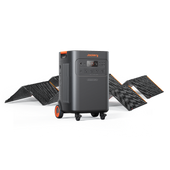












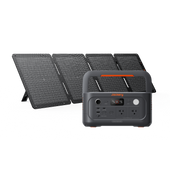



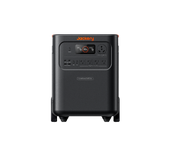
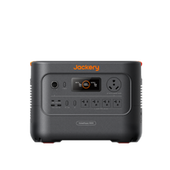






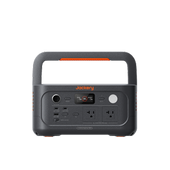





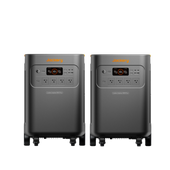
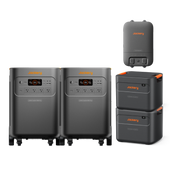





![[Add - on] Jackery Manual Transfer Switch for Explorer 5000 Plus - Jackery](http://www.jackery.com/cdn/shop/files/add-on-jackery-manual-transfer-switch-for-explorer-5000-plus-9017324.png?v=1754016782&width=170)

